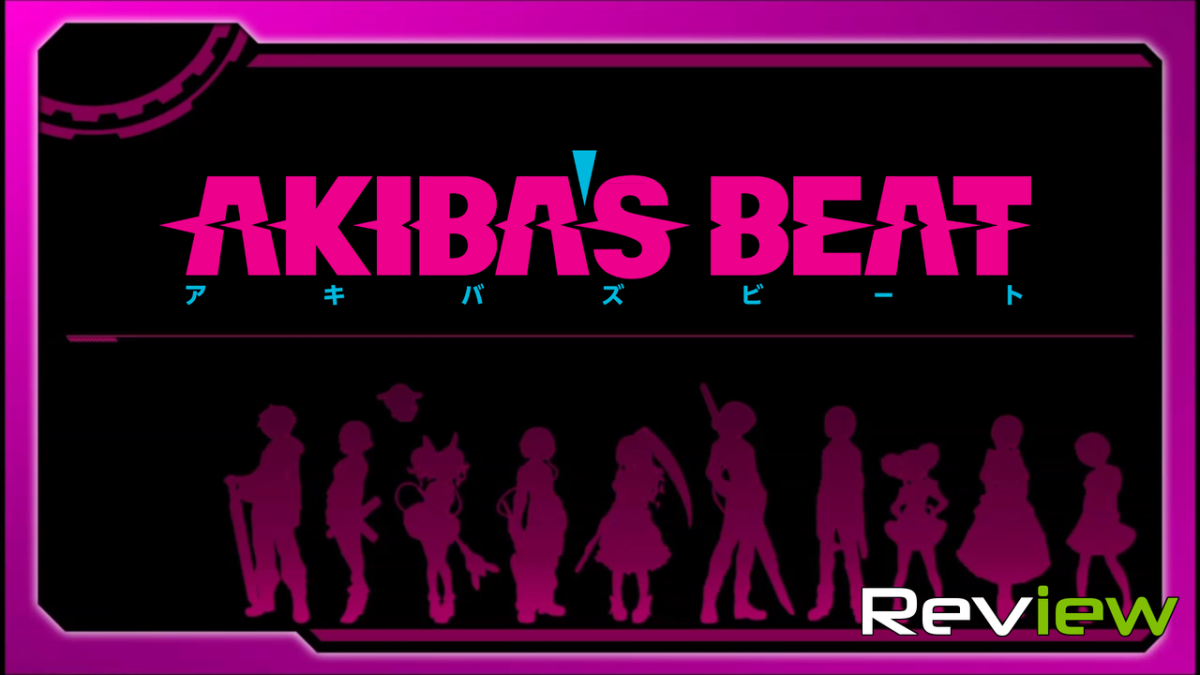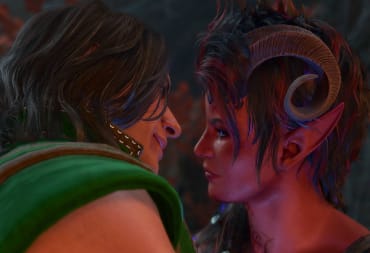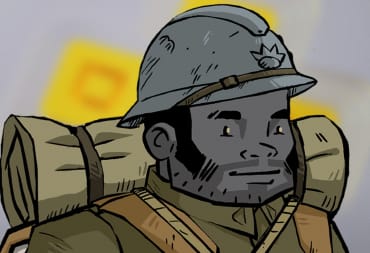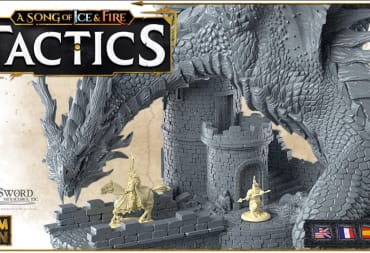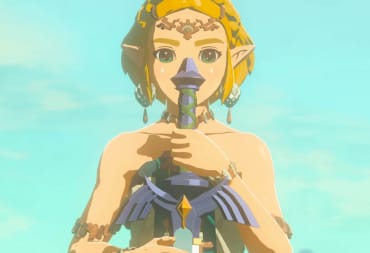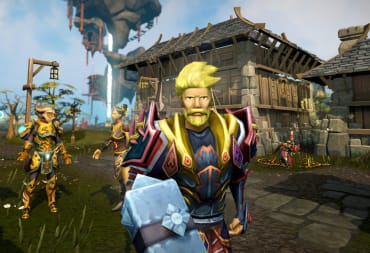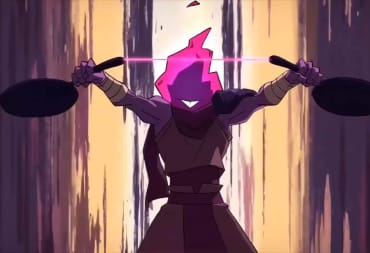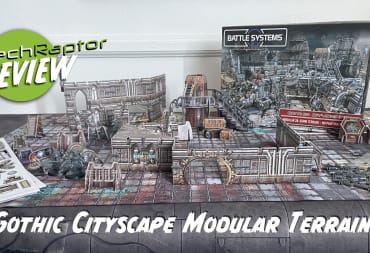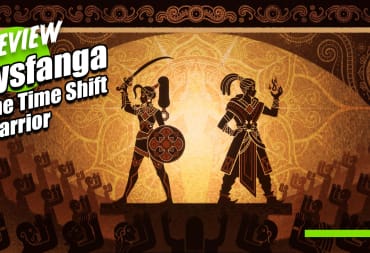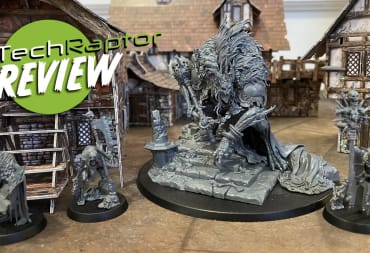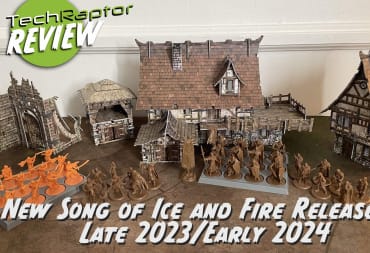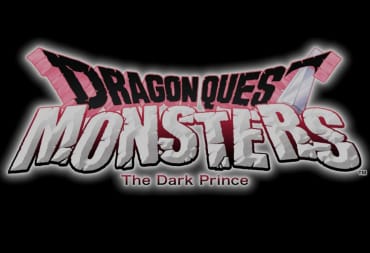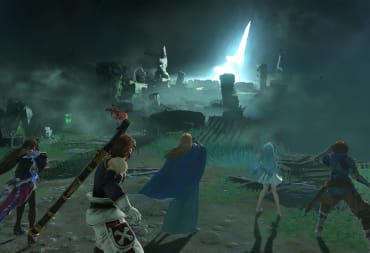Akihabara is Tokyo's Electric City. It's filled with all of your possible nerdy desires, ranging from Maid Cafes to Arcades, to even more niche hobbies like models and figurines. Following on from the setting of prior titles, Akiba's Beat takes place in a fairly accurate recreation of Akihabara. While it is a new entry in the Akiba's Trip series, the game takes a departure from the previous combat style and steers away from the more suggestive nature of the previous title.
The story of Akiba's Beat delves into the various hobbies that regulars at Akihabara are likely to engage in. College dropout Asahi Tachibana is one such individual, dividing his time between video games, late night Anime sessions, and exploring the variety of sights in Akihabara. After sleeping in and missing a meeting with a friend one Sunday, he finds that the next day he is chastised for being late and realizes that he's living through Sunday again. In his confusion, he runs into Saki Hoshino who explains Delusionscapes. These are worlds created of a humans delusion, explaining to Asahi that only some people can see them and it's up to them to stop these dreams from bleeding over into reality. Each of these Delusions is themed after the desires of the person who brought them into reality. Through your investigation, you discover more Delusionscapes, more people who want to join in the fight, and the reason for the increased encroachment of the Delusions and what that means for reality.
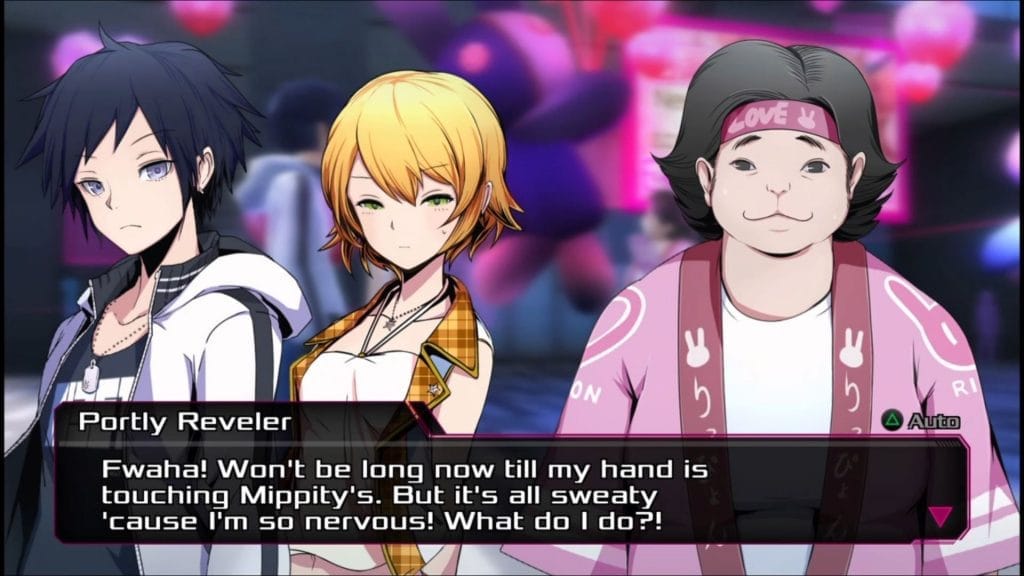
Narratively, the idea is an interesting one allowing anyone to have their dream come true, but it's the delivery and depth that really falls down. Characters are very straightforward, each with a single defining trait that normally gets linked to various Delusions. For example, our main character Asahi is a NEET, meaning he's Not in Education, Employment, or in Training, and that's almost the extent of his character throughout the entire game. Don't just think they tell you once and be done with it either, it's difficult to get through a conversation in the game without a character bringing up how Asahi is a NEET. While it's nowhere near as extreme for other characters you can still expect the same singularly defining trait to be present. When meeting new characters and building up your party takes over half the game, and only then does an overarching plot appear, this slow process of the game beating you over the head with the same information about one-dimensional characters quickly kills any interest in learning about the next character and their one defining trait.
Once the story begins to pick up (starting between chapters 8-10 of a 16 chapter game), it becomes a much more enjoyable experience. Translations for Japanese games can sometimes be hit and miss, but there are certain extremely cringe worthy moments during this title, most noticeably a pretty but mysterious girl who seems to have some connection to Asahi's past reminding him of the time that he was setting off fireworks and almost "got caught by the po-po" completely draws you out of any conversation leaving you confused. These strange turns of phrase appear all over the game as constant reminders of the translation team either not being able to find a suitable translation or possibly trying to inject further comedy into the game. The story pacing follows that of a similarly-themed anime hitting all the same highs and lows. While on paper this idea seems like it would work adding in time for gameplay leaves a slow build up of characters while keeping all the real plot for the back half. In this way, the plot also follows key points of other popular JRPG such as recent history's Persona 5 but when you don't have that character development set in place it just leaves the first half of the game slow and boring.
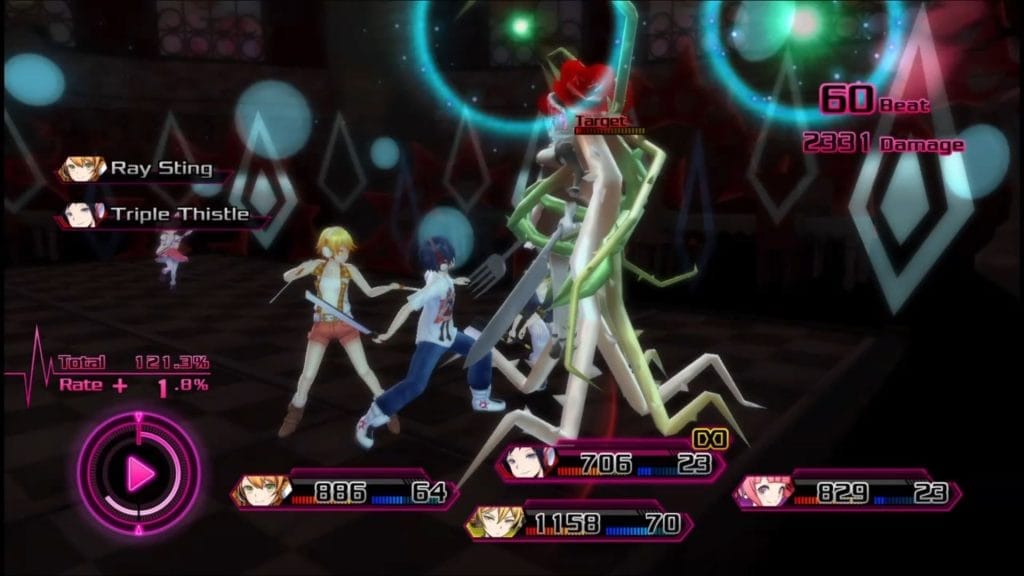
One of the biggest changes from the Akiba's Trip series to Akiba's Beat is the new battle system. As you're exploring Delusionscapes you will encounter enemies that you can attack, approach, or get caught from behind by them if you're not fast enough in your escape. Once the scene shifts to the combat arena, you participate in a 2.5D battle where you can move closer and farther away from your targeted foe, or even pivot around them. This movement is very reminiscent of Tekken with the addition of magical attacks to add a spark. At any point, you can swap targets or even move freely around the arena regardless of where your target is. This mix of classic fighting game and JRPG brings in a lot of the classic concepts like HP and SP bars while also having you rely on your ability to read your enemies to predict and dodge upcoming attacks. Through this method, you can either never lose health by timing dodges and retreats just right or come in swinging and plan to take all the damage in stride. This gives players options that let them enjoy the battle system as they want.
With a name like Akiba's Beat, there is some natural connection to music as well. While you fight you're charging up a special bar that allows you to begin multiplying your attack ability once filled. While activated, you listening to one of the tracks that you collect through story progression. These segments are fun, and great for really bringing the hurt to some of the more spongey bosses one song at a time, even if the music tends to get drowned out among the ruckus.
[gallery type="slideshow" ids="155112,155113,155114,155115"]
Outside of battles you are able to wander Delusionscapes filled with similar creatures with different paint jobs, different backgrounds, but the same boring floating platforms. This process essentially makes each of the Delusionscapes you encounter a simple recolor. The pink butterflies that you would expect to see in a pop idol delusion also appear in a construction themed Delusionscape, but they'll be yellow instead. Some of the Delusionscapes then work to include different puzzles along the lines of sliding doors, barriers and the ever popular teleport pads, forcing you to open your way to the next floor through trial and error. While it can be tedious running from one side of a map to another for the purpose of flipping one more switch, these features worked to elongate what could otherwise be very short explorations.
In the overworld, you're able to explore the streets of Akihabara from the station all the way up to Junk St. Spread out across the map there are a variety of shops to spend hard earned money on. The main way that you power up your character aside from gaining experience and leveling up is through building your own computer. Your computer is made up of the motherboard, raising your limit on gear, RAM strengthening your attacking power, storage for more songs, CPU allowing you to create larger combos, and the Video Card where you can unlock Image Mode at different levels.
Some of these items such as the top level Motherboards and the RAM is exclusive to characters but most work across everyone. For extra defense instead, you can go to any of the clothing stores around the area. All shops of a certain type will all stock the same items so it's just a matter of what's closest. As you progress through the story, side quests will also appear giving you a chance to spend more time with individual characters, but there isn't much gameplay during these side quests besides the regular amount of conversation. Usually as a reward for completing these, you get a new item specifically for that character, and of course, these are the quests that you must complete in order to get the 'Kanon' ending.
Audio throughout the game works really well, from the sound effects of hitting butterflies to the background tracks as you're moving through different locations. Each feels relevant to their surrounding while also encompassing the J-Pop theme that the title and music theme of the game introduces. Playing the game in both English and Japanese is possible, though each time you turn on the game you need to reset your language preferences from the main menu as the default is English. Both casts do a good job of portraying the personalities of their characters. The largest annoyance that was found was through the non-playable support characters that just tag along with your team. At times they can be useful letting you know if a treasure is nearby but they also say something in Delusionscapes every time you are near an enemy, a save point or a door. When that's all there really is to a Delusionscape, having a character warn you about every single enemy as you approach them quoting the same two to three lines of dialogue gets extremely repetitive.
For fans of JRPGs, this could be an interesting title that mixes together the many types of people that fill Akihabara's streets and a neat story that follows traditional anime beats (no pun intended). Though the real meat of the game is buried so far down that it's likely to turn off most gamers. Akiba's Beat attempts to combine interesting combat, a full story line, and fun JPOP tracks. Sadly, it only manages to bring a repetitive battle system, an underdeveloped story, bland characters and a soundtrack that makes you want to crank the volume down.
Akiba's Beat was provided to TechRaptor by the developers and was reviewed on PlayStation 4
Review Summary
Akiba's Beat tries really hard to show off an interesting combat system with a full story but falls short when faced with one dimensional character, repetitive dialogue, and lack of variation between many important locations. JRPG and Anime fans may enjoy but games extremely slow start hurts chances of players picking up the game again.
(Review Policy)Pros
- Last Half of Story
- Interesting Combat System
- Fun J-Pop Tracks
Cons
- First Half of Story
- Annoying Repetitive Dialogue
- One Dimensional Characters
- All Dungeons Are Recolors
Have a tip, or want to point out something we missed? Leave a Comment or e-mail us at tips@techraptor.net
